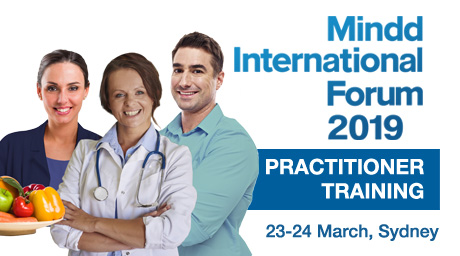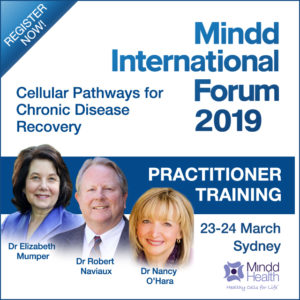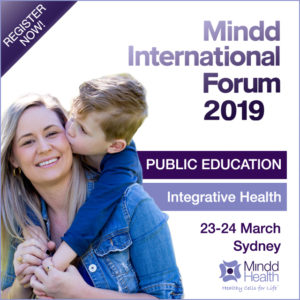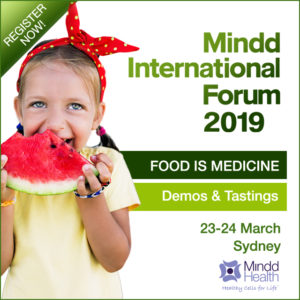ADHD without drugs may seem improbable, as a prescribed pharmaceutical medication is the general treatment for childhood neurological disorders.
However, there is no denying the role that lifestyle and dietary modifications have on patient outcomes. Paying attention to sleep, nutritional deficiencies, exercise, nutrition and the child’s classroom environment can have profound impacts on learning and attention deficit problems in children.
Dr Nancy O’Hara will be speaking at the 2019 Mindd Forum about the latest research on managing ADHD without drugs and teaching tools which clinicians can use to manage this condition holistically.
Mindd International Forum, 23-24 March (Live in Sydney, Australia and Livestreaming globally)
Certified practitioners who pass the assessment will be listed at mindd.org. A certificate of completion will be provided for CPD applications.
About Dr Nancy O’Hara
Dr Nancy O’Hara is a board-certified Pediatrician with a Master’s degree in Public Health who entered general practice in 1993. Since 1999 she has dedicated her Integrative medicine practice to the Functional and holistic care of children with chronic illness and neurodevelopmental disorders. She is also a global leader in the training of clinicians and is a member of the Mindd Foundation Advisory Board.
What is ADHD and How Common Is It?
Attention deficit hyperactivity disorder (ADHD) is an early childhood developmental disorder. Symptoms of ADHD can result in impulsive, hyperactive or inattentive actions or a combination of all three. Children may find it difficult to pay attention to things, get easily distracted, be very fidgety, have trouble sitting still or be very impatient when it comes to waiting their turn. These symptoms can affect academic performance, friendships and home life.
In Australia, reporting varies between 7-11 per cent of children having symptoms of ADHD, which is well over 1.2 million people. In the US, roughly 10% per cent of children experience ADHD (with a 42 per cent increase in diagnoses in the past eight years).
What is the Current Medical Treatment for ADHD?
The most common medical treatment generally involves a combination of pharmaceutical medication, behavioural therapy, psychotherapy, emotional counselling and social skills training. Psychostimulants are the drugs prescribed for ADHD. In Australia, the US (and other countries) psychostimulant and non-stimulant medications used for ADHD may include:
- Stimulants:
- Amphetamines
- Dextroamphetamine
- Dexmethylphenidate
- Lisdexamfetamine
- Methylphenidate (e.g. Ritalin)
- Nonstimulants:
- Atomoxetine
- Clonidine hydrochloride
- Guanfacine
Are there Side Effects from Psychostimulant Medications?
There are known side effects to the psychostimulant medications prescribed to children such as decreased appetite, sleeplessness, a higher instance of anxiety, increased irritability, gastrointestinal symptoms and headache. Long-term studies also show a tendency towards addictions as an adult, weight loss and slowing of growth in height.
Tics (a habitual spasmodic contraction of the muscles most commonly present in the face) may be worsened by psychostimulants or may appear for the first time during this treatment.
Children who take the medication consistently may also find that the effectiveness wears off and results in ADHD symptoms returning, often more intensely than before.
Can Functional Medicine Treat ADHD without Drugs?
There are multiple contributing factors to the aetiology of ADHD that can be linked back to lifestyle and dietary choices. Functional practitioners take a thorough case history and run lab tests to identify the critical cause(s) in each individual. For one child it may be heavy metal toxicity, for another it may be infections and nutritional deficiencies.
A Functional Medicine approach to ADHD without Drugs integrates several modalities to address biochemical, physiological and emotional factors including dietary intervention, nutritional supplementation, herbs, energy medicine, psychology and more.
Dr Nancy O’Hara will be breaking down the relevance of these treatment options in her Mindd Forum 2019 Presentation ‘Making the Grade: ADHD without Drugs’.
Dr Nancy O’Hara’s other Presentations
You can attend Dr O’Hara’s lectures either Live in Sydney, Australia or Livestream from your home. Certified practitioners who pass the assessment will be listed at mindd.org. A certificate of completion will be provided for CPD applications.
- Chronic Immune System Activation/Chronic Inflammatory Response Syndrome
- POTS & Dysautonomia
- PANS, PANDAS & Beyond
- Lyme: It is in Australia
- Trust Your Gut: Celiac & Non-Celiac Gluten Sensitivity
- Making the Grade: ADHD without drugs
Learning Objectives for Dr Nancy O’Hara’s Presentation:
- Identifying chronic inflammatory responses that may be triggered by biotoxins, tick bites, toxic metabolic products, extracellular ATP and cell wall fragments from moulds.
- Explore the complexities of postural orthostatic tachycardia syndrome and identify treatment strategies.
- Learning to identify PANS and PANDAS and the associated symptoms, as well as identifying the link between other infectious triggers and neurological symptoms in children.
- The different ways in which Lyme Disease is approached, including diagnostic criteria and standard verse controversial treatment approaches.
- The role of zonulin and the latest updates about progress in identifying and treating celiac disease, as well as the expansion of gluten restriction for people without classic celiac disease.
- The importance of lifestyle modifications, including careful attention to sleep, exercise and nutrition in treating ADHD without drugs.
For more information on the Forum or to register (Live or Livestream) visit the Speakers and Program page…
References:
- https://www.healthdirect.gov.au/adhd-in-children
- https://www.adhdaustralia.org.au/about-adhd/what-is-attention-deficit-hyperactivity-disorder-adhd/
- https://www.health.nsw.gov.au/pharmaceutical/patients/Pages/faq-adhd-consumers.aspx
- https://draxe.com/symptoms-of-adhd/
- https://articles.mercola.com/sites/articles/archive/2017/03/02/people-with-adhd-have-altered-brains.aspx/


